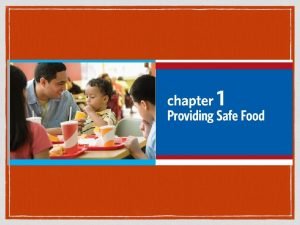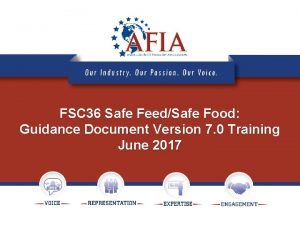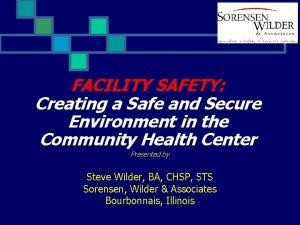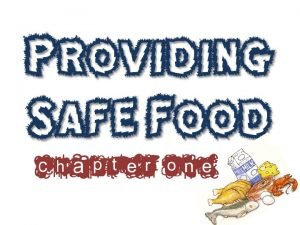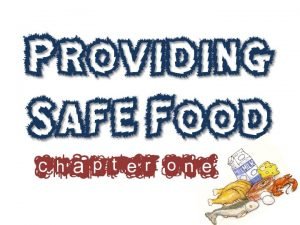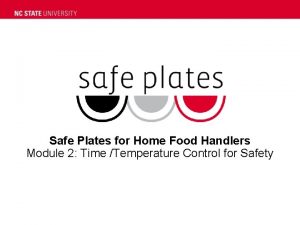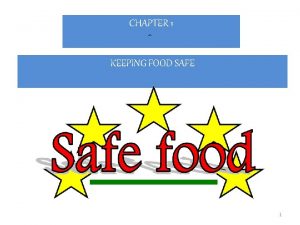Providing Safe Food CHAPTER 1 TCS food food







- Slides: 7

Providing Safe Food CHAPTER 1

� TCS food: food requiring time and temperature control for food safety. � Ready-to-eat food: cooked food, washed fruit & vegetables and deli meat. � Foodborne illness: is a disease transmitted to people through food.

� Time-temperature abuse: food not held or stored at correct temperature; food not cooked properly; food not cooled correctly. � Cross-contamination: pathogens can be transferred from one surface or food to another.

FOODS LIKELY TO BECOME UNSAFE Milk & dairy products � Meat: beef, pork & lamb � Fish � Baked potatoes � Tofu or other soy protein � Sliced melons, cut tomatoes, cut leafy greens � Shell eggs (except those treated to eliminate Salmonella ) � Poultry � Shellfish & crustacean � Rice, beans & vegetables � Sprouts & sprout seeds � Untreated garlic and oil mixtures �

THESE PEOPLE HAVE A HIGHER RISK OF GETTING A FOODBORNE ILLNESS: � Elderly people � Preschool-age children � People with compromised immune systems

� The Food and Drug Administration (FDA) inspects all food except meat, poultry, and eggs. The agency also regulates food transported across state lines. In addition, the agency issues the FDA Food Code, which provides recommendations for food safety regulations. � The U. S. Department of Agriculture (USDA) regulates and inspects meat, poultry, and eggs. It also regulates food that crosses state boundaries or involves more than one state.

� Agencies such as the Centers for Disease Control and Prevention (CDC) and the U. S. Public Health Service (PHS) conduct research into the causes of foodborne-illness outbreaks. � State and local regulatory authorities write or adopt code that regulates retail and foodservice operations.
